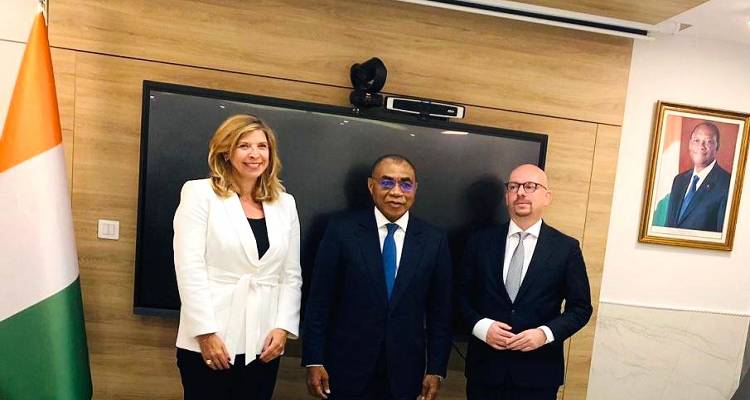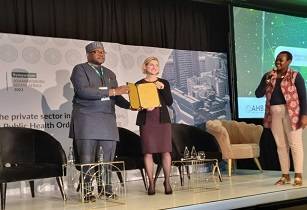As the US secretary of state Rex Tillerson begins his first trip to Sub-Saharan Africa as secretary, beginning 6 March 2018, he focused on various issues aiming to strengthen the US’ trade and investment ties with the continent
“Over the past century, as African nations emerged from their colonial past, we have witnessed a dramatic increase in America’s engagement with Africa. The State Department created the Africa Bureau in 1958, a year following then vice-president Richard Nixon’s trip to the continent. Ghana had invited the vice-president and Martin Luther King, Jr to attend their Independence Day celebration, an event that took place exactly 61 years ago today.”
“A few years later, President John F Kennedy established USAID with an eye toward African development, and our first Peace Corps volunteers arrived in Ghana and Tanzania. Forty years ago this month, President Jimmy Carter visited Liberia and Nigeria, where he announced that our nation has now turned in an unprecedented way toward Africa.”
“Today that turning continues. Our country’s security and economic prosperity are linked with Africa’s like never before,” Tillerson added.
“By the year 2030, Africa will represent about one quarter of the world’s workforce. And by the year 2050, the population of the continent is expected to double to more than 2.5bn people, with 70 per cent of them under the age of 30.”
In addition, Africa is experiencing significant economic growth. The World Bank estimates that six of the ten fastest growing economies in the world this year will be African.
“Today only about 12 per cent of total African exports are delivered to their neighbouring countries on the continent. Compare that to 25 per cent among ASEAN countries and more than 60 per cent in Europe, and the potential for more economic prosperity through trade on the continent itself is quite evident. As African nations achieve greater regional integration through lowering tariff barriers and improving transport, energy, and infrastructure links, that will create more opportunities for US businesses, investment and transatlantic trade.”
“And importing American business practices and expertise provides the best combination for Africa’s future by contributing to economic prosperity, equipping African nations with new capabilities, and doing so in an open, transparent framework. That is why we want to create the new development finance institution. DFIs are specialised government banks designed to support private sector development to improve development effectiveness. We’re working with congress to give the United States the ability to compete with countries that already utilize finance to achieve their goals in the developing world.”
“Power Africa, a USAID-led program, is one of the largest public-private partnerships in the continent’s development history. Established five years ago, Power Africa was created to provide African countries access to one of the most basic needs for development - electricity. Today tens of millions of Africans – across Sub-Saharan Africa – have access to electricity in part because of commitments from more than 140 private sector partners. Our aim is to provide 30,000MW of power by the year 2030 or 60mn to reach 300mn Africans. Administrator Green announced Power Africa 2.0 last week to expand even more power opportunities.”
According to Tillerson, African countries will factor more and more into numerous global security and development challenges, as well as expansive opportunities for economic growth and influence.
“As more Africans move out of poverty, nations will require more infrastructure and development. The growing population of young people, if left without jobs and a hope for the future, will create new ways for terrorists to exploit the next generation, subverting stability and derailing democratic governments. Leaders will be challenged to innovate and to manage the limited financial resources they have.”
“As we look ahead, this administration seeks to deepen our partnership with Africa, with an aim of making African countries more resilient and more self-sufficient. That serves our partners, and it serves the United States as well by creating a stable future for all of our children and our grandchildren.”
The US has supported the Trans-Sahara Counterterrorism Partnership to provide training and promote cooperation between military, law enforcement and civil actors across North and West Africa. We have deployed a similar approach in East Africa, with the partnership for Regional East Africa Counterterrorism (PREACT). Since 2016, the US has contributed more than US$140mn to help partners prevent terrorist safe havens and the recruitment through these partnerships.
“The United States sees a bright future in Africa. We have an opportunity to be part of Africa’s journey to a stable, prosperous future for its people. Each of these priorities – trade and investment, good governments – governance, respect for human rights, combating terrorism and instability – have the same guiding principle in mind: to help African countries build the capacity to take care of their own people,” Tillerson further noted.






































